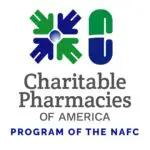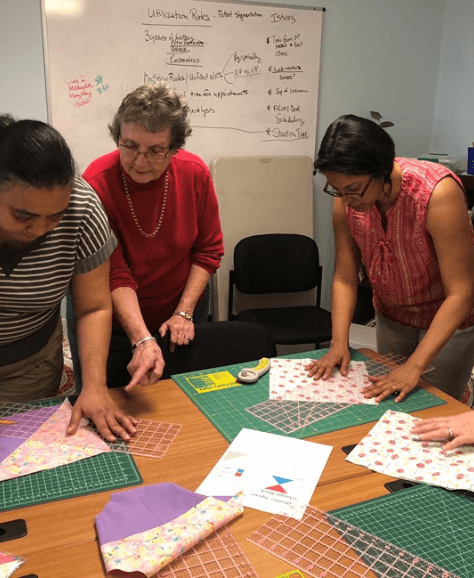
Charitable Pharmacies of America has been acquired by the NAFC
The organizations have been long-standing partners, both aligning on their visions and missions.
Our Purpose
To improve health outcomes among the vulnerable through charitable pharmacy services.
How We Serve
Empower patients in underserved communities through charitable pharmacy services that deliver the highest quality, inclusive patient-centered care.
Provide a network to establish best practices and expertise, make connections, build industry standards, and elevate the efficacy and awareness of charitable pharmacies and distributors across the country.
Maintain professional competence by conforming with pharmacy best practices and regulatory compliance.
Elevate the voices of underrepresented populations through nonpartisan advocacy.

About the Charitable Pharmacies Code of Ethics
Our organizations commit to the following code of ethics.
A charitable pharmacy dedicated to the delivery of pharmacy services to underserved patients with limited access to healthcare, with the expressed purpose of improving health outcomes among the vulnerable by reducing health disparities and increasing medication access.
Our Commitment:
- Deliver the highest quality patient-centered care to optimize medication use and health outcomes for all, while safeguarding the dignity and the value of every patient served.
- Act with honesty and integrity while maintaining professional competence and conforming with pharmacy best practices.
- Recognize our responsibilities to the patients and the communities we serve.
- Ensure compliance with all local, state and federal regulations.

Dignity and value of patients, employees, volunteers, students and stakeholders
No tolerance of any kind of discrimination that creates a hostile and unpleasant environment for patients, employees, volunteers, students or stakeholders. Anti-discrimination and anti-harassment policies collaborate.
Quality Pharmaceuticals
Quality pharmaceuticals are sourced, tracked, stored and dispensed per local, state and federal regulations and manufacturer recommendations.
Comprehensive Medication Management
Deliver highest quality patient-centered care (Comprehensive Medication Management) as established by APhA, ASHP, and other national pharmacist organizations. Services include, but are not limited to, patient counseling and education and collaborating with other healthcare providers and community resources.
Business Management
Operate pharmacy or facility in compliance with consumer protection and local, state and national business regulations.
Monitoring and Improvement
Following initial needs assessment, determine through regular review (annual) if the needs of the patients and community are being met or have changed. Implement adjustments required to optimize services. Share results with the community and stakeholders.
Documentation
Collect attestation or other documentation that verifies population being served has limited access to medication (low income, lack of insurance, other criteria).
Professional Education
Participate in professional offerings related to charity pharmacy, patient care and education, and business and pharmacy best practices. This is for licensed staff, but, whenever possible, should include all staff, volunteers, and applicable stakeholders.
What is a charitable pharmacy?
A community charitable pharmacy is a pharmacy that serves with the expressed purpose of improving health outcomes among the vulnerable by reducing health disparities and increasing medication access.
Typically, a community charitable pharmacy includes standard business features, such as:
- Structured as a nonprofit 501(c)3 or equivalent (university nonprofit, government nonprofit, etc.).
- In receipt of a valid, current pharmacy and/or pharmacist license, or similar dispensing authority.
- Adherence to all local and federal regulations pertaining to the management of a licensed community charitable pharmacy and/or clinic.
- Dispensing a therapeutically broad formulary of medications for free or at a significantly reduced cost to the patient.
- Bridging patients to external programs (such as Patient Assistance Programs, mail-order discount programs, vouchers, etc.) that are free or which assure a significantly reduced cost to the patient.
- Eligibility processes that determine qualification for income status (not precluding other eligibility status features specific to the goals of each site, such as health insurance status, assets, etc.).
- Processes, culture, and systems which assure the dignity and respect for each patient served.
- Business hours and dispensing practices which allow for patients’ continual access to their medications, should the patient seek such access.
- Integration into the community healthcare safety net to support inbound referrals from prescribers for qualifying patients as a standard business practice (private practices, hospitals, free clinics).
- Integration into the community healthcare safety net to support outbound integration with community services necessary for improving health outcomes (medical home enrollment, care management, public health coverage model enrollment, ancillary medical services, etc.)
